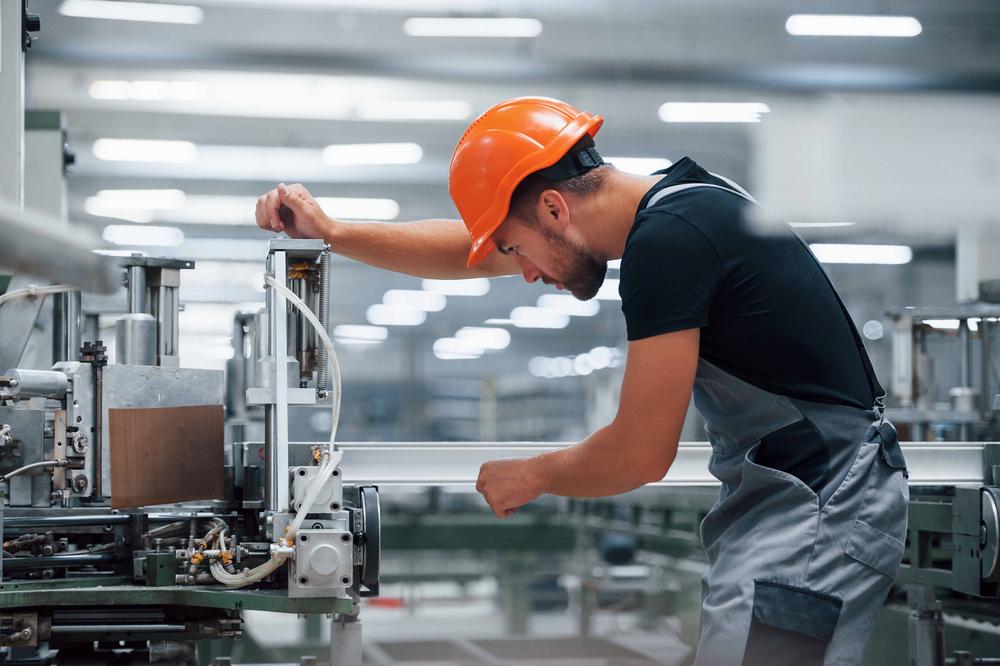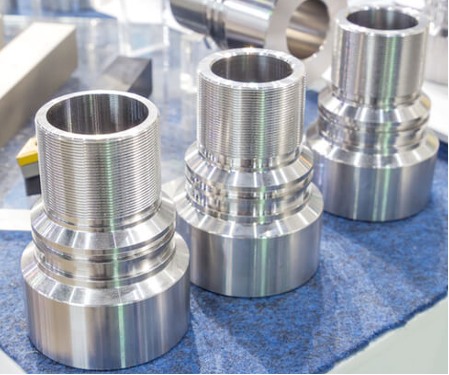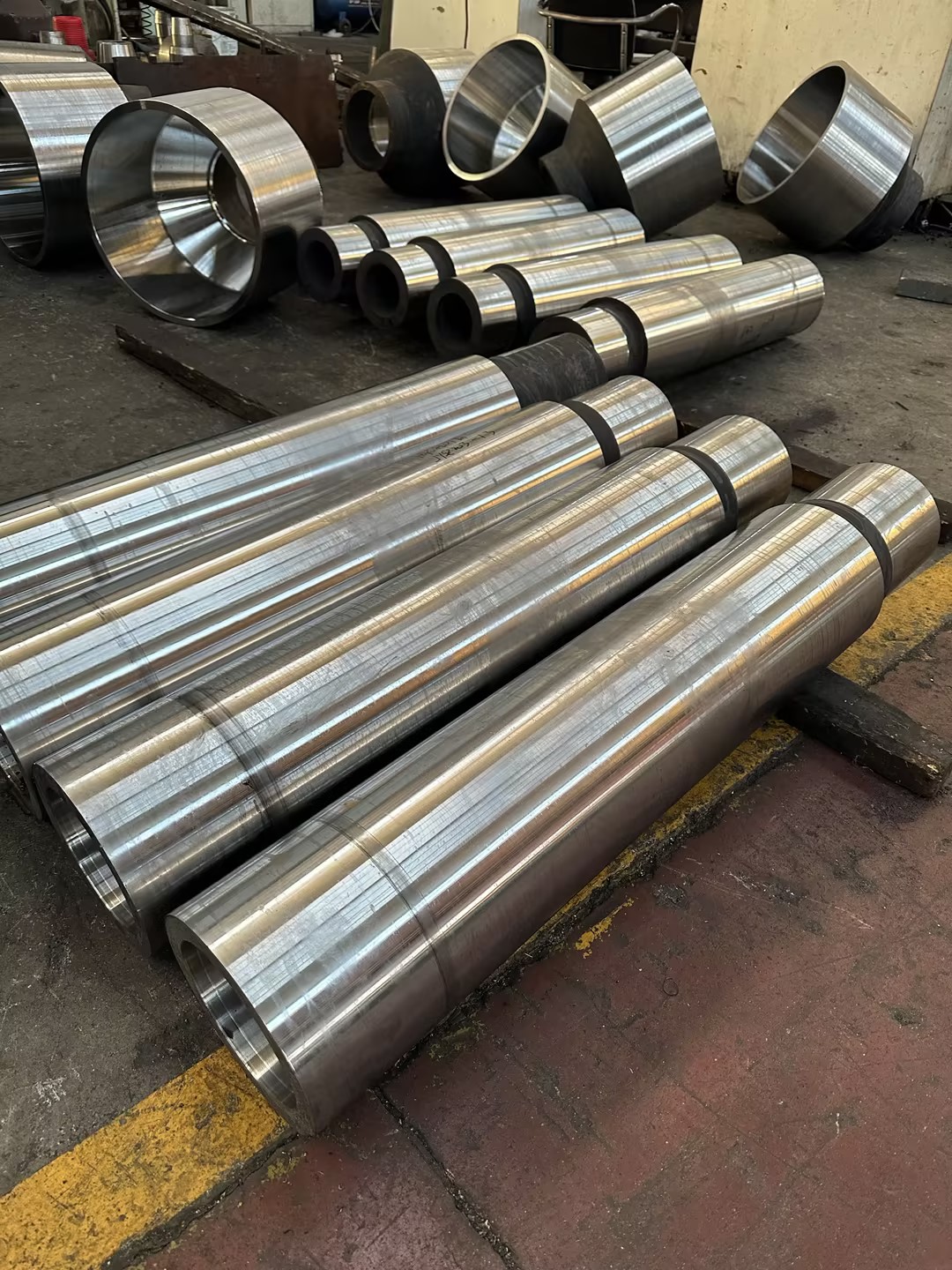
The B2B platform for the best purchasing descision. Identify and compare relevant B2B manufacturers, suppliers and retailers
Close
Filter
Result configuration
Continents
Select continent
Locations
Result types
Company type
Select company type
Industries
Select industry
Company status
Select company status preset
Number of employees
Min.
Max.
Founding year
Forte Grinding Inc
Franklin Park, United States
B
1-10 Employees
1994
Key takeaway
Forte Precision Metals specializes in metal turning services, focusing on enhancing the physical surface texture of various geometric figures. With a strong commitment to quality assurance and ISO 9001:2015 certification, the company ensures consistent, high-quality results for a diverse range of clients.
Reference
Service
Metal Turning | Forte Precision Metals, Inc.
We offer abrasive cutting and metal turning services operate for enhancing physical surface texture in various geometric figures.
Century Metal Spinning
Bensenville, United States
B
11-50 Employees
1919
Key takeaway
Century Metal Spinning specializes in spun metal components, utilizing advanced Automatic Spinning technology to ensure high quality and competitive pricing for both prototypes and production. Their expertise and flexible processes position them as a reliable source for metal spinning needs, particularly in sectors like Aerospace and Defense.
Reference
Core business
Metal Spinning, Spun Metal Products, Metal Spinning Companies, Metal Spinning Company | centurymetalspinning

MW Metal Spinning Ltd.
Canada
A
11-50 Employees
1962
Key takeaway
MW Metal Spinning specializes in various metalworking services, including metal spinning, fabrication, welding, and general machining, emphasizing quality, precision, and timely delivery.
Reference
Service
Services | MW Metal Spinning
Looking for more accurate results?
Find the right companies for free by entering your custom query!
25M+ companies
250M+ products
Free to use
SANBRAY PTY. LTD.
Greater Brisbane, Australia
A
11-50 Employees
1985
Key takeaway
Turbon Metal Spinners specializes in metal spinning and has enhanced its capabilities with CNC controlled lathes, allowing for the production of thicker materials and complex parts. Their experience includes manufacturing components for various industries, showcasing their expertise in creating intricate designs and maintaining high tolerances.
Reference
Service
Services – Turbon Metal Spinners, the metal spinning specialists
ST Metal Manufacturer Limited
Shenzhen, China
D
11-50 Employees
2010
Key takeaway
ST Metal offers a specialized CNC turning service, highlighting its expertise in the customized production of metal parts. With over 10 years of experience and advanced processing equipment, the company provides efficient and cost-effective solutions for various industries.
Reference
Service
CNC Turning Service
Elyria Metal Spinning & Fabricating Co-Inc.
Elyria, United States
B
1-10 Employees
1961
Key takeaway
Elyria Metal Spinning and Fabricating Company specializes in high-precision hand spun metal products and has extensive experience in metal spinning, making it well-equipped to meet diverse metal forming requirements. Their commitment to quality and on-time delivery ensures that customers receive precise parts with tight tolerances.
Reference
Service
Metal Spinning Services by Elyria Metal Spinning
Turnings Plus LLC
United States
B
1-10 Employees
2019
Key takeaway
Turnings Plus is a CNC Precision Machining shop that specializes in high-quality metal turning and offers comprehensive services for CNC, milling, and lathe manufacturing needs. With a commitment to detail and customer satisfaction, they ensure timely delivery of custom-crafted parts across various industries.
Reference
Core business
CNC Machining | Turnings Plus | Washington MO
Turnings Plus is a CNC Precision Machining shop specializing in high-quality, on-time delivery of products for CNC, mill, and lathe services.
Specialized Turning
Peabody, United States
B
11-50 Employees
1935
Key takeaway
Specialized Turning is a precision machine shop that offers various machining services, including precision and CNC machining. Their commitment to unmatched quality and on-time delivery, with customer ratings over 95%, ensures that each order meets specifications and is fit for use.
Reference
Core business
Specialized Turning - Precision Machining Services
Precision Machining Services
Total Machine LLC
United States
B
1-10 Employees
2010
Key takeaway
The company specializes in CNC lathe services, highlighting their expertise in precision metal turning, which is essential for high-quality production. With state-of-the-art equipment and years of experience, they can handle both short run and high volume projects.
Reference
Service
Services – Total Machine LLC
ELITE TURNING & MACHINING CORP
City of Rochester, United States
B
11-50 Employees
2012
Key takeaway
Elite Turning & Machining specializes in providing high-quality parts through services like CNC turning and Swiss-style machining. Their commitment to quality and customer satisfaction positions them as a top supplier in the Rochester area, capable of handling both short-run and large-volume manufacturing needs.
Reference
Service
Services - Elite Turning & Machining
Technologies which have been searched by others and may be interesting for you:
A selection of suitable products and services provided by verified companies according to your search.

Product
CNC Turning Parts
Go to product
A selection of suitable use cases for products or services provided by verified companies according to your search.

Use case
CNC Turning Parts
Machinery, Shipbuilding, Energy, Automotive
Shafts: These are long, cylindrical pieces used to transmit power or motion. Pins: Precision pins are used in various applications, including as hinge pins, dowels, or locator pins in machinery and equipment. Bushings: These are cylindrical linings designed to reduce friction or provide a protective interface between two parts in mechanical systems. Spacers: Used to create a space between two components in an assembly to ensure proper positioning and alignment. Valves and Valve Components: Essential in controlling the flow of liquids or gases in systems. Pulleys: These parts support movement and change of direction of a belt in machines. Bolts and Screws: Precision threading can be produced with CNC turning. Hydraulic Components: Parts like pistons, cylinders, and connectors, used in hydraulic systems. Carbon Steels: Low carbon steels (like 1018) are more ductile and weldable, while high carbon steels (like 1045) are harder and wear-resistant but less ductile. Alloy Steels: These steels are often used for their strength, toughness, wear resistance, and hardness. Examples include 4140 and 4340 steels. Tool Steels: Tool steels are high-carbon steels .They are known for their hardness and resistance to abrasion. Examples are D2, A2, and O1. Stainless Steels: Common grades used in CNC turning include 304 and 316, known for their good formability and corrosion resistance.

Use case
CNC Turning Parts
Machinery, Shipbuilding, Energy, Automotive
Shafts: These are long, cylindrical pieces used to transmit power or motion. Pins: Precision pins are used in various applications, including as hinge pins, dowels, or locator pins in machinery and equipment. Bushings: These are cylindrical linings designed to reduce friction or provide a protective interface between two parts in mechanical systems. Spacers: Used to create a space between two components in an assembly to ensure proper positioning and alignment. Valves and Valve Components: Essential in controlling the flow of liquids or gases in systems. Pulleys: These parts support movement and change of direction of a belt in machines. Bolts and Screws: Precision threading can be produced with CNC turning. Hydraulic Components: Parts like pistons, cylinders, and connectors, used in hydraulic systems. Carbon Steels: Low carbon steels (like 1018) are more ductile and weldable, while high carbon steels (like 1045) are harder and wear-resistant but less ductile. Alloy Steels: These steels are often used for their strength, toughness, wear resistance, and hardness. Examples include 4140 and 4340 steels. Tool Steels: Tool steels are high-carbon steels .They are known for their hardness and resistance to abrasion. Examples are D2, A2, and O1. Stainless Steels: Common grades used in CNC turning include 304 and 316, known for their good formability and corrosion resistance.
Metal turning is a machining process that involves the removal of material from a rotating workpiece to create cylindrical shapes or profiles. This technique is typically performed on a lathe, where cutting tools are used to shape the metal as it spins. The process is essential for producing parts with precision, such as shafts, pins, and bushings, and is widely used in various industries, including automotive, aerospace, and manufacturing. The primary goal of metal turning is to achieve accurate dimensions and smooth surface finishes. By adjusting the speed, feed rate, and depth of cut, manufacturers can optimize the turning process for different materials and desired outcomes. Metal turning is crucial for creating custom components that meet specific design requirements, making it a vital service offered by many machining providers.
Metal turning is a machining process that involves rotating a metal workpiece against a cutting tool. As the workpiece spins on a lathe, the cutting tool is fed into it, removing material to create cylindrical shapes or features. This method can produce various geometries, including straight and tapered surfaces, grooves, and threads. The precision of metal turning relies on the speed of the lathe and the type of cutting tool used. Typically, a sharp tool made from high-speed steel or carbide is employed to enhance efficiency and surface finish. The process is widely used in manufacturing for producing components like shafts, bushings, and fittings, ensuring high accuracy and repeatability.
Various materials are suitable for metal turning, each offering unique properties that cater to different applications. Steel is one of the most commonly used materials due to its strength and versatility. It can be easily machined and is used in a wide range of industries. Aluminum is another popular choice, known for its lightweight and excellent machinability. It provides a good surface finish and is often used in automotive and aerospace applications. Brass, with its excellent corrosion resistance and machinability, is favored for precision components such as fittings and valves. Stainless steel is also suitable, offering superior resistance to rust and heat, making it ideal for medical and food processing applications. Each of these materials can be effectively utilized in metal turning processes to create high-quality components.
1. Precision and Accuracy
Metal turning allows for high precision and accuracy in machining components. The process involves rotating a metal workpiece against a cutting tool, which enables the creation of intricate shapes and tight tolerances that are essential for many applications.
2. Versatility
This machining method can be applied to a wide variety of materials, including steel, aluminum, and brass. Its versatility makes it suitable for producing complex parts used in industries such as automotive, aerospace, and general manufacturing.
3. Efficiency
Metal turning is known for its efficiency, as it can produce parts quickly with minimal waste. The continuous rotation of the workpiece optimizes cutting speeds, reducing cycle times and enhancing productivity.
4. Surface Finish
The process yields excellent surface finishes, which can often reduce the need for additional finishing operations. A smooth surface is critical in many applications to ensure proper functioning and aesthetic appeal.
5. Cost-Effectiveness
Due to its efficiency and ability to produce parts with high precision, metal turning can be a cost-effective solution for manufacturers. The reduction in material waste and the quick turnaround time contribute to lower overall production costs.
Industries that commonly utilize metal turning include aerospace, automotive, and machinery manufacturing. In the aerospace sector, precision components are essential for safety and performance, making metal turning crucial for creating parts like turbine blades and landing gear components. The automotive industry also heavily relies on metal turning to produce intricate parts such as gears, axles, and engine components, ensuring high performance and durability. Additionally, machinery manufacturing benefits from metal turning for producing shafts, fittings, and other essential components that require precise dimensions and tight tolerances.
Some interesting numbers and facts about your company results for Metal Turning
| Country with most fitting companies | United States |
| Amount of fitting manufacturers | 9311 |
| Amount of suitable service providers | 10000 |
| Average amount of employees | 11-50 |
| Oldest suiting company | 1919 |
| Youngest suiting company | 2019 |
20%
40%
60%
80%
Some interesting questions that has been asked about the results you have just received for Metal Turning
What are related technologies to Metal Turning?
Based on our calculations related technologies to Metal Turning are Industrial Electroplating, Industrial Filtration, Industrial Sintering, Industrial Extrusion, Industrial Handling
Which industries are mostly working on Metal Turning?
The most represented industries which are working in Metal Turning are Other, Manufacturing, Machinery Manufacturing, Mining, Construction
How does ensun find these Metal Turning Companies?
ensun uses an advanced search and ranking system capable of sifting through millions of companies and hundreds of millions of products and services to identify suitable matches. This is achieved by leveraging cutting-edge technologies, including Artificial Intelligence.